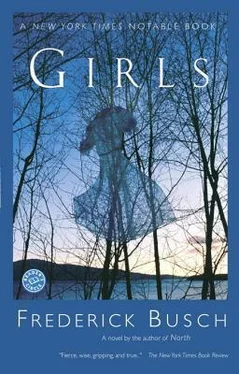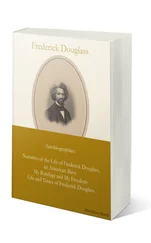“You jerk.”
I nodded.
“You unbelievable jerk.”
I nodded.
Instead of coming over to help me, or to give me codeine-laced tablets, or lie down beside me and murmur comfort, she walked away.
I wished, as I worked at getting up, that she could see me. It would have moved her, I thought, seeing my difficulties. I was on my knees in the mudroom when she walked — I’d use the word strode , actually — around me so she could get her parka from the wall.
As she pulled on gloves and tucked her hair into her woolen cap, she said, “I’m going for the dog.”
“I might lie down someplace where he won’t step on me coming home.”
“Good,” she said.
“Or you.”
“Jack,” she said, “you don’t have to worry about my foot or any other part of me touching you.”
I was remembering a time when we were in the bar of the Christopher Hotel, which is out on a country road that takes you toward Cooperstown by way of the hills. Around nine or ten on Saturday nights, the local men bring their dates in for a hamburger and some beer and some dancing. A woman I knew from the campus bookstore, Helena, was there with her boyfriend, who worked for the state fisheries. Fanny and I were eating a late steak, which is what they call the long, thin, greasy meat they charge extra for bringing to your table. The song that someone had punched on the jukebox was Stevie Ray Vaughan playing “Testify.”
Helena is a tall and sweet-faced woman with long black hair that hangs halfway down her back and a busty, big-hipped figure. She came dancing over to the table by herself. She closed her eyes when she got to us and she said, “Jack, get up here and get some.”
I looked at Fanny. She stared at me with a face I barely remembered from when we started going out in the seventies.
I didn’t think you should have to be scared of your wife. You’d think I would have learned. I said, “Yes, ma’am.”
What happened was, I held her away from me, and she moved in a very sexy way to get in closer while moving much of her body at the same time. I more or less held on for the ride. The music ended and I got her back to her date, who didn’t look up from his conversation with some men. It was a piss-your-wife-off move on his part, and her dancing was a piss-your-husband-off on hers.
When I got back to the table, Fanny looked like she was crouching in her chair. I leaned on my arms in front of her with my hands flat on the table. She took her knife, all smeared with steak fat, and she very slowly put it into the web of skin between my finger and my thumb. People looked over at the sound I made.
Fanny handed me her napkin and said, “Here. Put some pressure on it.”
I waited for her to tell me something else.
She said, “Don’t expect me to be your nurse.”
Moving up slowly to my knees on the floor of the mudroom, I told myself, You might have to expect less friendship now than you’ve been used to in the last little while.
WE HAD MORE SNOW on our road than I’d ever seen. I watched it from our bedroom window and our living room windows and our kitchen window. In the back room, I saw the vast amounts of snow in the field and at the edge of the woods. I saw plenty of snow. They delivered my car in it and went back to work at the campus in it, but I didn’t. I stayed home and, according to Fanny, I healed. What was wounded in her did not.
While she was at work, I climbed out onto the roof from an upstairs bedroom, and I tried to shovel snow. The idea was to keep the stuff from breaking through the roof. It weighed tons. The idea was also that when the snow really began to melt, it would run under the shingles, and then if it froze again and melted, it would shove the shingles off or even break through the subroof. The dog stayed below, where the lawn would be if the snow ever melted, and he barked each time I tossed a shovelful over. That added up to five barks, because the pain was too bad. I settled for edging the stuff around with a stiff leg, then kicking sideways, in a clumsy soccer motion, to push it in powdering mounds off the roof. He didn’t bark for the pushes because they were probably not very impressive.
I replaced a doorknob. That meant using a borrowed backset drill I should have returned to the hardware store half a season ago. I was terrible with it. I didn’t have enough body strength to set myself and wrestle tools around. I ended up with a hole about a foot in diameter. You’d have needed a knob the size of a beach ball for the door. I did some laundry, swearing again, as I always did, when I saw the label on the softener. No matter what brand, it’s always a sweet, cuddly little kid, or a bear you’re supposed to want to hug. I fastened an FM antenna to the radio in the back room and hung it out a window. I listened to music for a while, but I didn’t want to feel anyone else’s rhythms. I cooked. I made my infamous chili con carne with about twenty-five cloves of garlic and lots of cumin and oregano and chili powder and some shavings of dried chili. I couldn’t find hamburger meat or stew beef, so I hacked up some steaks I found in the freezer. Serve with ice-cold beer to someone who likes you.
It was time to take more of the little pills with codeine in them. I did that and then I put the chili away without eating it. Since I was still in my boots after working on the roof, I put on a sweater and a parka, found my gloves, used shears to cut off two fingers of the right one, told the dog to stay, and I left. Getting stuffed in behind the wheel was painful, but I reminded myself that I’d taken pills and they surely had kicked in by now. I reminded myself again, then got the car going. I backed it up by using the mirror so I wouldn’t have to try to twist my body, hoped that no one was coming down the road that minute, and drove toward Chenango Flats.
It looked so small, I was thinking half an hour later, when I entered it from the south. There was the river, with heaps of ice and snow at its banks, and the crusts of ice at its edges. There were the railroad tracks no trains went over anymore. I thought of southern and midwestern towns I’d been in during the war, where the trains ran all the time. That was when I started to hear a little blues music, and to understand how much of it was the sound of trains. In the songs, they were always leaving. The fields were attached to houses, so the children grew up, if they weren’t Janice Tanner, as part of the crop. I drove slowly through, passing Strodemaster’s large, empty-looking, dark Victorian farmhouse and his beautiful stone and planking barn. I passed his neighbors and came to the crossroads. I knew one wing of it headed east toward a quiet, small lake. I’d heard that children, if they weren’t Janice Tanner, ice-skated there. Heading south a little more, having passed maybe eleven houses, I came to the Chenango Flats Baptist Church.
It was small; it had a stubby excuse for a spire and no cross on top. The five-foot cross, fashioned of wood stained a piney color, was on the clapboard out front. The congregation wasn’t rich. The glassed-in announcement board said that the Reverend B. Tanner’s Sunday sermon would be “God on His Knees.” I wondered if Mrs. Tanner approved. It took several minutes to emerge from the car. I tried to keep a straight face in case someone was watching. Outside a church, I thought, who do you expect to be watching you? I didn’t look up. I went through the narrow anteroom into the church. It was all on one level. It was painted a harsh white. There was a set of about a dozen pews, and behind them several rows of folding chairs, some wood and some metal. In the front, I saw a battered black upright piano off to the right. Few lights were on, and daylight through the narrow unstained windows didn’t turn anything awfully bright.
Читать дальше










